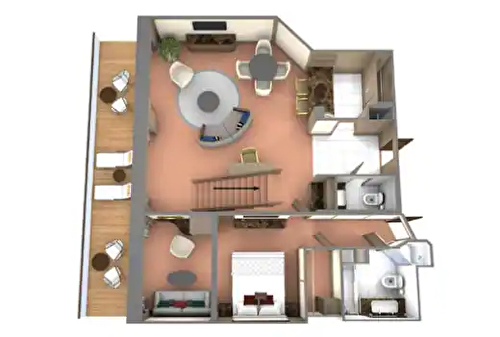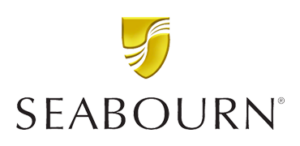Kimberley Expedition & Remote Islands Of Pacific
- 24 Aug ‘25
- 67 nights
- Departing from Broome
- Seabourn Pursuit
-
Inside price fromCall for price
-
Outside price fromCall for price
-
Balcony price fromCall for price
-
Suite price fromCall for price
YOUR ITINERARY
Broome - Lacepede Island, Australia - Talbot Bay, Australia - Montgomery Reef, West Territories, Australia - Freshwater Cove, Australia - Kuri Bay, Western Australia, Australia - Hunter River, Western Australia - Ashmore Reef, Australia - Vansittart Bay - King George River, Western Australia, Australia - Darwin, Australia - Agats, Indonesia - Misool, Yapap Lagoon - Gam Island - Kri Island, Indonesia - Manokwari, Indonesia - Cenderawasih Bay - Cenderawasih Bay - Jayapura - Vanimo - Garove Island, Papua New Guinea - Rabaul - Ghizo Island - Honiara - Vanikoro - Ambryn Islands - Lautoka, Fiji - Kadavu, Fiji - Vulaga, Fiji - Pangai, Ha'apai Group - Nukupule Island, Haapai Group - Vava U, Tonga - Cross International Dateline - Apia, Upolo - Alofi, Niue - Aitutaki - Raiatea, Society Islands, French Polynesia - Huahine - Papeete, French Polynesia - Anaa, French Polynesia - Fakarava, Tuamotu, French Polynesia - Adamstown, Pitcairn Island - Henderson Island, Pitcairn - Ducie Island - Easter Island, Chile - Easter Island, Chile - Selkirk Island, Chile - Isla Robinson Crusoe - San Antonio (Santiago), Chile
Isolated on the farthest northwest corner of the c...
Isolated on the farthest northwest corner of the continent, Broome thrived from its founding in 1883 based on the bounty of South Sea pearls found in offshore oyster beds. Even today, the pearling industry is active here, though most are now cultured. But Broome has grown into one of Australia’s premier holiday destinations, offering an amazing variety of attractions and activities for visitors. It boasts a splendid, 14-mile strand of soft white sand at Cable Beach, where people flock to enjoy sunset camel rides. And with 2,600 islands in the area and warm seas, it is a sportsman’s paradise. But the unique allure of the region is the unspoiled expanse of bizarre geological formations, waterways and ancient Aboriginal lands called the Kimberley. Corrugated with red-hued cliffs and escarpments, and laced with pristine waterways, swimming holes and waterfalls, the Kimberley is unlike any other landscape on earth. It invites visitors to cruise the coast, fly over the ranges, kayak the islands and explore the rugged terrain in 4WD vehicles. The only difficulty is deciding which adventure to partake of next.
Kuri Bay is a remote coastal bay in the far north of We...
Kuri Bay is a remote coastal bay in the far north of Western Australia in the Kimberley region, about 370 km north of Broome. It is a designated point on the Western Australian Forecast Areas, utilised by the Bureau of Meteorology as a boundary for the North Kimberley Coast area from the West Kimberley Coast
Despite its small size, Darwin is a modern, multi-cultural cit...
Despite its small size, Darwin is a modern, multi-cultural city, and its proximity to Asia makes it ideal for travel. Named after the famous scientist, Charles Darwin, the area was originally settled by the Larrakia Aboriginals. The Dutch arrived and mapped the land in the 1600s, followed by the British in 1939, when the town was given its English name. Darwin has a beautiful coastline, as well as numerous parks and gardens, making the city a top spot for outdoor activities.
The Solomon Islands is a sovereign nation consisting of mult...
The Solomon Islands is a sovereign nation consisting of multiple island groups, scattered in the South Pacific east of Papua New Guinea. Its capital is Honiara, on the island of Guadalcanal. Many of the outlying islands in the nation are relatively untouched, but Honiara is a busier hub of international commerce. The islands’ recent history is scarred by the desperate battles fought between the Japanese and American forces during World War II. In 1942, the Japanese launched their last great land offensive in the islands, which culminated in the Battle of Henderson Field fought at Honiara. Of the estimated 36,000 Japanese troops on Guadalcanal at the beginning, only 1,000 survived, the rest having either been killed directly, or succumbed to disease and starvation. Ghostly evidence of this horrific warfare dots the island, and it is memorialized at the American Memorial overlooking the town and at a smaller Solomons Peace Memorial erected by the Japanese outside the city. On a lighter note, traditional arts and crafts are on display at the National Museum, which also boasts a display of eight traditional Melanesian houses from various parts of the country. Behind the museum is a cultural center. Above town there is a pleasant botanical garden, and the bustling Central Market is a great place to get a feel for everyday life in Honiara. Although English is the official language, only a small percentage of Solomonese speak it. The common language is Pijin.
A major seaport, Fiji’s second-largest city, Lautok...
A major seaport, Fiji’s second-largest city, Lautoka is the main center of the sugar and timber industries. Towering royal palms march in a long, orderly row from the main street to the harbor and into the heart of the city. Although Lautoka grew up around the Fijan village of Namoli, it is a very Indian town today.
Vavaʻu is the island group of one large islan...
Vavaʻu is the island group of one large island and 40 smaller ones in Tonga. It is part of Vavaʻu District which includes several other individual islands. According to tradition the Maui god finished up both Tongatapu and Vavaʻu, but put a little more effort into the former.
A total of sixteen islands comprise the Samoas, considered to ...
A total of sixteen islands comprise the Samoas, considered to be the heart of Polynesia. It was from these islands that early Polynesians sailed to populate other Pacific Islands. Today this chain of islands is divided into two political units – the U.S. Territory of American Samoa and the independent country of Western Samoa. Much of the charm of the Samoas lies in the simple village life and the friendly people, combined with a striking landscape of soaring mountain peaks, rugged coastlines, white sandy beaches and tropical rainforests rich in flowering plants. Western Samoa consists of a total of nine islands with the two main ones, Savi’i and Upolo, separated by a narrow strait. The country’s capital Apia, resembling an old South Seas port during the early trading days, perches on the north coast of Upolo. Colonial-style wooden buildings and churches line the tree-shaded main street that curves around the harbor. The primary attractions include Parliament House, the village green, Independence Monument and the former home of Robert Louis Stevenson, now the residence of Western Samoa’s head of state. A trip around the island passes mile after mile of stunning landscape, interspersed with tumbling waterfalls, breathtaking views, tiny villages, and coconut and cocoa plantations.
Alofi is the capital of the Pacific Ocean island nation of Niu...
Alofi is the capital of the Pacific Ocean island nation of Niue. With a population of 597 in 2017, Alofi has the distinction of being the second smallest national capital city in terms of population. It consists of the two villages: Alofi North and Alofi South where the government headquarters are located.
The second-largest of the Society Islands is practic...
The second-largest of the Society Islands is practically twinned with its neighbor Taha’a. Actually they are connected by a reef in the same lagoon and may have been one island in the past. The main town, Uturoa is where most of the population lives. It’s lively, although no competition for Tahiti. Called the Sacred Island, Raiatea’s name means “bright sky,” and it was probably the first human community in the islands. The ancient sacred site of Taputapuatea is a UNESCO World Heritage Site, and may have been the place from which Polynesian migrations to Hawaii, the Cook Islands, New Zealand and the rest of the South Pacific started. Although less touristed than Tahiti, caring for visitors has grown in importance. Agriculture is mainly given over to coconuts, pineapples and vanilla. Vanilla orchids are hand-pollinated, since Raiatea has no insect pollinators for vanilla blossoms. South Seas pearls are farmed in the lagoon in various colors. A hike up Mt. Tapioi rewards with stunning views of the lagoon and sea, and tall Bora Bora on the far horizon. Another favorite hike leads to the island’s three waterfalls. The tallest peak, Mt. Temehani, is the place to look for the unique, five-petaled Tiare Apetahi flowers that grow nowhere else. The lagoon is dotted with tiny motus, which are mostly coral sand beach, and are popular for castaway swimming and snorkeling adventures.
The islands of French Polynesia are acclaimed as ...
The islands of French Polynesia are acclaimed as the most beautiful in the South Pacific. Tahiti is the largest of the Polynesian islands and home to the capital city of Papeete, a delightful blend of cultures. Papeete, meaning the “water basket,” was once a gathering place where Tahitians came to fill their calabashes with fresh water. Today, it is the gateway to the country, and boasts romantic resorts, fine dining, vibrant markets, pearl shops, and boutiques. Tahiti’s mountainous interior is adorned with deep valleys and scenic waterfalls, while the rugged coastal lands are home to fields of tropical flowers, and glorious white and black sand beaches.
The 77 Tuamotus, (the name means “Distant Islands”...
The 77 Tuamotus, (the name means “Distant Islands” in Polynesian) comprise the largest chain of coral atolls on earth. They sprawl across the vast blue South Pacific Ocean encompassing an area the size of Western Europe. Atolls are literally the skeletal remains of coral reefs, forming rings of crushed coral sand surrounding a shallow central lagoon. The natural flora and fauna of the Oceanic realm is adapted to this environment, and Fakarava’s large lagoon is designated by UNESCO as a Biosphere Reserve. The people of Fakarava farm coconuts for copra on shore and pearls in the lagoons. They also host the travelers who flock here to bask on the beaches and snorkel or dive in the luxuriant coral gardens along the shore. At the long spit of Les Sables Roses, the pink blush of the sand reveals its coral origin. The sleepy towns of Rotoava and Tetamanu offer scant attractions for visitors, except for their distinctive rock lighthouses shaped like stepped pyramids. Tetamanu does boast a 19th Century church built of coral rock by missionaries, and an adjoining cemetery with coral rock headstones. Aside from snorkeling or beach-basking, some visitors enjoy a visit to a lagoon pearl farm, to see how the large, flat bivalves are coaxed into creating the treasured gems formed by the lustrous nacre inside their shells.
Adamstown is the capital of, and the only settlement on, the ...
Adamstown is the capital of, and the only settlement on, the Pitcairn Islands.
The southeastern-most point in the Polynesian Triang...
The southeastern-most point in the Polynesian Triangle, tiny Easter Island in the South Pacific is one of the most remote places on earth. Even more oddly, it belongs to Chile, which lies 3,700 miles away over the eastern horizon. In fact, a large slice of the island is Chile’s Rapa Nui National Park, preserving the sculptural heritage of the indigenous Rapa Nui people, whose ancestors carved the huge human effigies called moai that give the island its renown and earned it UNESCO World Heritage Site status. These stylized sculptures stand on the slopes of the island, gazing implacably out to sea, often on stone platforms called ahu. They were apparently carved between the 13th and 16th centuries, for reasons that are debated. But the enigmatic effigies, the dramatic volcanic landscape, the Rapa Nui people themselves and the sheer isolation of the island combine to draw visitors from every corner of the globe to this speck in the world’s largest ocean.
The southeastern-most point in the Polynesian Triangle, ti...
The southeastern-most point in the Polynesian Triangle, tiny Easter Island in the South Pacific is one of the most remote places on earth. Even more oddly, it belongs to Chile, which lies 3,700 miles away over the eastern horizon. In fact, a large slice of the island is Chile’s Rapa Nui National Park, preserving the sculptural heritage of the indigenous Rapa Nui people, whose ancestors carved the huge human effigies called moai that give the island its renown and earned it UNESCO World Heritage Site status. These stylized sculptures stand on the slopes of the island, gazing implacably out to sea, often on stone platforms called ahu. They were apparently carved between the 13th and 16th centuries, for reasons that are debated. But the enigmatic effigies, the dramatic volcanic landscape, the Rapa Nui people themselves and the sheer isolation of the island combine to draw visitors from every corner of the globe to this speck in the world’s largest ocean.
This large, modern port serves Chile’s capital, Santia...
This large, modern port serves Chile’s capital, Santiago, a city with Spanish colonial charm and a vivacious spirit. Encircled by the Andes and the Coastal Range, Santiago is centered around the Plaza de Armas, with several of the city’s landmarks: the 18th-century Metropolitan Cathedral the Palacio de la Real Audencia from 1808, the City Hall and the National Museum of History. North of San Antonio lie the picturesque old port and university town of Valparaíso and the colorful seaside resort of Viña del Mar. In between the coast and the capital are valleys filled with some of Chile’s most famous wineries, all inviting you to come and taste.
YOUR SHIP - The Seabourn Pursuit
Construction for Seabourn Pursuit began in fall 2020 during a ceremony in San Giorgo di Nogare, Italy, and the build process is well underway. The ship is scheduled for delivery in 2023, with its sister ship, Seabourn Venture, slated for delivery in 2022.
Seabourn Pursuit is the second Seabourn expedition ship slated to launch in 2023. Both Seabourn Pursuit and sister ship Seabourn Venture are designed and built for diverse environments to PC6 Polar Class standards and include modern hardware and technology that will extend the ships’ global deployment and capabilities. Each will carry two custom-built submarines, 24 Zodiacs, kayaks, and a 26-person expert expedition team whose role is to engage guests throughout each voyage.
The ship then continues onward by exploring the waters and landscapes of Greenland, Iceland and Norway throughout the spring and early summer, in some instances retracing the path of the Vikings to the frontier town of Tromsø while carving its way through the inside passage of the Norwegian fjords along the way.
Description
Construction for Seabourn Pursuit began in fall 2020 during a ceremony in San Giorgo di Nogare, Italy, and the build process is well underway. The ship is scheduled for delivery in 2023, with its sister ship, Seabourn Venture, slated for delivery in 2022.
Seabourn Pursuit is the second Seabourn expedition ship slated to launch in 2023. Both Seabourn Pursuit and sister ship Seabourn Venture are designed and built for diverse environments to PC6 Polar Class standards and include modern hardware and technology that will extend the ships’ global deployment and capabilities. Each will carry two custom-built submarines, 24 Zodiacs, kayaks, and a 26-person expert expedition team whose role is to engage guests throughout each voyage.
The ship then continues onward by exploring the waters and landscapes of Greenland, Iceland and Norway throughout the spring and early summer, in some instances retracing the path of the Vikings to the frontier town of Tromsø while carving its way through the inside passage of the Norwegian fjords along the way.
STATEROOMS

suite


